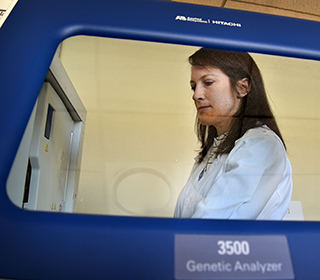Latest News Archive
Please select Category, Year, and then Month to display items
![]()
RAG has a new
name and format:
ACT—
Active, Civic, Teaching.
The University of the Free State (UFS) is ready to kick off the new year with a bang. Get ready to celebrate the start of university with a cause. RAG, as you know it, has a new name and format: ACT—Active, Civic, Teaching.
You get further if you pull in the same direction, rather than various good-intentioned movements on different routes. In a collective effort, four exciting programmes will take flight, which are listed below:
- Schools project for first-year students: mentored by senior students, groups of first-year students will be assigned to, and participate in local school projects. Students will learn to solve problems and work together in small groups as they collaborate on a specific community project involving primary or secondary schools in the Mangaung region.
- Community gardens: This project will help individual student communities to begin and maintain their own vegetable gardens in order to address food insecurity within their own environment.
- Eco-vehicle project for senior students: The aim of the eco-vehicle project is to create an interdisciplinary experience. Undergraduate senior students from a Student Life College (SLC) can work together to build an eco-vehicle from waste material. The track day, along with creative pit stops, will take place on 16 February 2018, preceding the Community celebration of 17 February 2018.
- Community celebration: To foster good relationships between the UFS and the community, we aim to host an annual celebration that will be open to the broader Mangaung community. The celebrations will kick off on the morning of 17 February 2018 with a business relay and a showcase of the eco-vehicles. The festive day will conclude with an evening music concert.
Keep checking the UFS website for updates about more ACT activities during the month of February.
New Division of Virology to deliver crucial services for HIV diagnosis and resistance testing
2015-12-14

The establishment of a Division of Virology within the Department of Medical Microbiology, under the joint auspices of the UFS and the National Health Laboratory Service (NHLS), reflects the continued growth within Virology. Dr Dominique Goedhals, Head of the Division, says the division will also provide training of undergraduate medical students, medical technologists and technicians, and registrars. |
The newly established Division of Virology at the University of the Free State will be one of only five laboratories in the country to be involved in crucial diagnostic and testing services for HIV viral load monitoring, early infant diagnosis, and HIV resistance testing.
The Virology Diagnostic Laboratory serves as the reference laboratory for all HIV National Priority Programme samples for the Free State and Northern Cape provinces.
Medical staff at the laboratory will provide a 24-hour consultative service, as well as outreach programmes to district laboratories in the Free State and Northern Cape where pathologists are not available.
Dr Dominique Goedhals, Head of the Division of Virology, says this division, under the joint auspices of the UFS and the National Health Laboratory Service (NHLS), reflects the continued growth within Virology.
The division will not only deliver this critical diagnostic service, but will also focus on training and teaching, as well as research.
Teaching and training activities include teaching of undergraduate medical students, medical technologists and technicians, and registrars. The postgraduate science programme has a high output of honours, master’s and doctoral students in Virology. The intern medical scientist programme is also active, with five interns having successfully submitted their portfolios since the programme was implemented in 2010.
Research activities under the Head of Research, Prof Felicity Burt, have also expanded and continue to show increases in publication output and acquisition of grant funding. Established research groups within the Division of Virology focus on vector-borne and zoonotic viruses, human papilloma viruses (HPV), and human immunodeficiency virus (HIV), as well as work with a number of international collaborators.